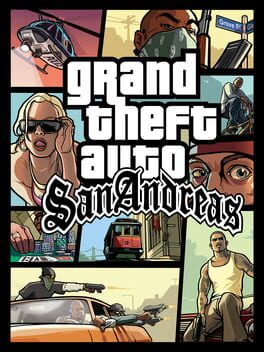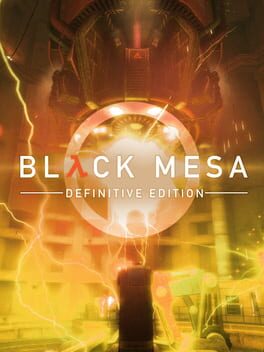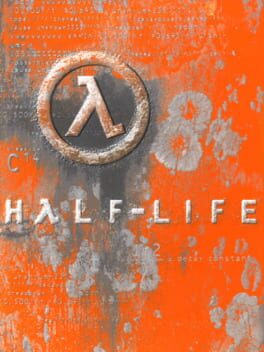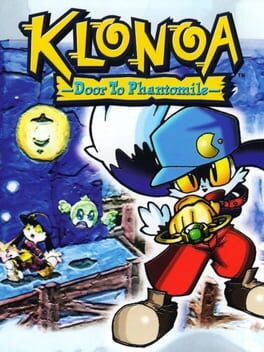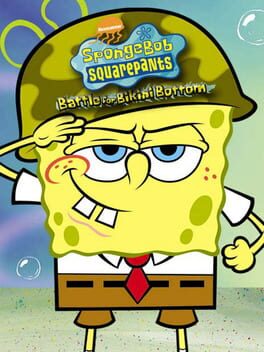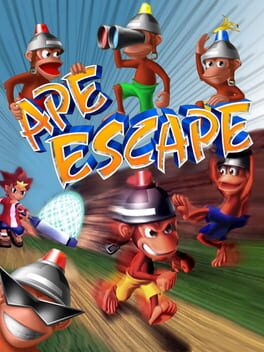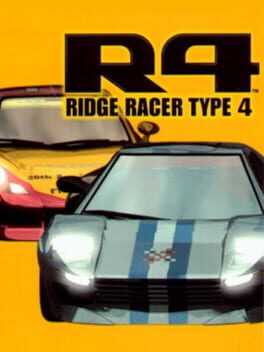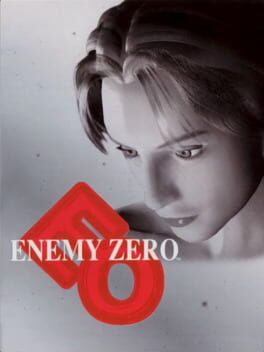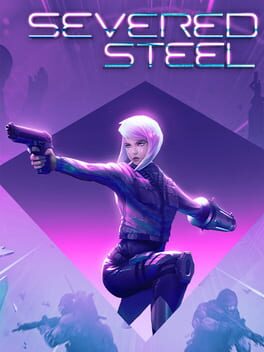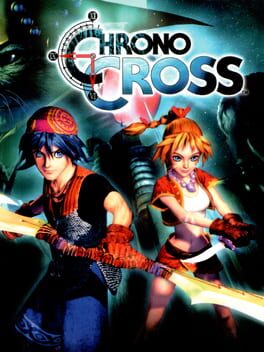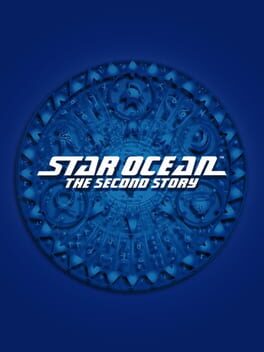MidnightTV
2022
Pressure cooker filled with existential dread and what a hopeless situation of desperation would feel; capital punishment and institutional exploitation of human lives for an altruistic purpose. It's High-Life dipped in the bends in the best possible way. It's rare to feel this amount of dread and tension swell to a crescendo and put me in the seat of despair not only for the individual in question, but the vain attempt at salvaging the last few days or years of hope for a dying species.
This is a game that was beyond hype from the time of its release. Few series at this time instilled this much fervor in the community with controversy, acclaim, and redefining video game convention as a whole. To say it was highly anticipated is an understatement. Its online marketing and teasers pushed fans - and myself - to the limits of listlessness with the promises and possibilities for gameplay. After revisiting, to dismiss it as a simple open-world crime fantasy is not only reductionist, but an insult to the medium pushed as interactive art and exemplifies what video game writing and stories could be.
Grand Theft Auto: San Andreas delves closer to reality than its predecessors, taking true accounts of U.S. police/government corruption and contextualizing/fictionalizing to the GTA universe: from a microcosmic to macro scope of the war on drugs, purposeful sabotage and racial divide of minority communities, illegal CIA funding with drug money ala cocaine money and funding Contras, and the violent displacement and schism created with malice from these institutions. I read some reviewer saying it was an anti-drug theme and moral to the game. Rather than simplifying with a statement like that, it's more what occurs with government self-interest and moral rot in these institutions and organizations; from showing how disenfranchised folk can end up like Smoke or OG LOC due to having the biggest role model and examples pushed to the destitute and those without any upward mobility in life: morally bankrupt entrepreneurship at the expense of allowing hedonistic opportunities for profit by capitalists; the idea of 'success' as we see it ultimately corrupt normal people - the flagship and naive aspiration for anyone in a destitute position and instilling a 'by any means necessary' ethos in the worst possible way. It's the American example and easily skewed epitome of what everyday people can misconstrue as the requisite - this twisted Scarface model people mistaking for the complete opposite message, and purposefully being fed this false notion.
It's a reflection of the values or lack there of which they've grown into and seen people in power as achieving wealth and success; the false 'self-made man' paradigm and 'American Dream' parable falsely fed - furthering the idea that only the self, not community, can propel you forward which is ultimately proven false in spades in this games story. CJ and his community dismantle corruption with the hand they're dealt with and successfully bringing communities together towards the same goal. While they manipulate and play the system, creating a mini revolution, they're still very much ensnared in it, and begs the question: what truly brings change; how do you successfully bring revolution to all; and is it all all possible to do so without direct action as Malcolm X and others have stated is the only means of bringing change? CJ met success for the micro, yet the lingering macro of the state and world still continue.
The end almost reminded me of Freddy Hampton's cry for communities from different backgrounds coming together collectively and strengthening their voices to enact change. It shows how every community and walk of life is part of a greater picture and collectively being led astray. By integrating different walks of life in its story from lower criminal organizations to growers, dealers, people in the fringes trying to make a piece for themself and either work in tandem or in secret amongst these restrictions, San Andreas shows the how they all align into the same funnel; how these institutions at play purposefully exploit and use them; how they're just as opportunistic, corrupt, and hedonistic; and the relativity of benefit these arbitrary laws or actions for those in power - the only capitalists allowed are the ones already calling the shots. It's a small club, and if you're not in it, you're out.
Replaying as an adult I can see now the overall message it tries to show, and it does so with amazing focus and success overall - a precursor to RDRII, MP3, and ofc GTA4 expanding on these themes. However, GTA: San Andreas does this in the best example imo showing the labyrinthian entanglement of every single level of crime, drugs, and corruption reach. Its incredible satire and needed a protagonist like CJ, the everyday man who is on the cusp of epiphany yet still very much small picture, to depict something like this; and honestly the closest The Wire will ever in video game form. It's an example of satire perfected with wit, crass, and tongue-in-cheek critique easily palatable to anyone. Wild this even got made.
Grand Theft Auto: San Andreas delves closer to reality than its predecessors, taking true accounts of U.S. police/government corruption and contextualizing/fictionalizing to the GTA universe: from a microcosmic to macro scope of the war on drugs, purposeful sabotage and racial divide of minority communities, illegal CIA funding with drug money ala cocaine money and funding Contras, and the violent displacement and schism created with malice from these institutions. I read some reviewer saying it was an anti-drug theme and moral to the game. Rather than simplifying with a statement like that, it's more what occurs with government self-interest and moral rot in these institutions and organizations; from showing how disenfranchised folk can end up like Smoke or OG LOC due to having the biggest role model and examples pushed to the destitute and those without any upward mobility in life: morally bankrupt entrepreneurship at the expense of allowing hedonistic opportunities for profit by capitalists; the idea of 'success' as we see it ultimately corrupt normal people - the flagship and naive aspiration for anyone in a destitute position and instilling a 'by any means necessary' ethos in the worst possible way. It's the American example and easily skewed epitome of what everyday people can misconstrue as the requisite - this twisted Scarface model people mistaking for the complete opposite message, and purposefully being fed this false notion.
It's a reflection of the values or lack there of which they've grown into and seen people in power as achieving wealth and success; the false 'self-made man' paradigm and 'American Dream' parable falsely fed - furthering the idea that only the self, not community, can propel you forward which is ultimately proven false in spades in this games story. CJ and his community dismantle corruption with the hand they're dealt with and successfully bringing communities together towards the same goal. While they manipulate and play the system, creating a mini revolution, they're still very much ensnared in it, and begs the question: what truly brings change; how do you successfully bring revolution to all; and is it all all possible to do so without direct action as Malcolm X and others have stated is the only means of bringing change? CJ met success for the micro, yet the lingering macro of the state and world still continue.
The end almost reminded me of Freddy Hampton's cry for communities from different backgrounds coming together collectively and strengthening their voices to enact change. It shows how every community and walk of life is part of a greater picture and collectively being led astray. By integrating different walks of life in its story from lower criminal organizations to growers, dealers, people in the fringes trying to make a piece for themself and either work in tandem or in secret amongst these restrictions, San Andreas shows the how they all align into the same funnel; how these institutions at play purposefully exploit and use them; how they're just as opportunistic, corrupt, and hedonistic; and the relativity of benefit these arbitrary laws or actions for those in power - the only capitalists allowed are the ones already calling the shots. It's a small club, and if you're not in it, you're out.
Replaying as an adult I can see now the overall message it tries to show, and it does so with amazing focus and success overall - a precursor to RDRII, MP3, and ofc GTA4 expanding on these themes. However, GTA: San Andreas does this in the best example imo showing the labyrinthian entanglement of every single level of crime, drugs, and corruption reach. Its incredible satire and needed a protagonist like CJ, the everyday man who is on the cusp of epiphany yet still very much small picture, to depict something like this; and honestly the closest The Wire will ever in video game form. It's an example of satire perfected with wit, crass, and tongue-in-cheek critique easily palatable to anyone. Wild this even got made.
Brilliant first half, almost beat for beat remake and revamping that's welcomed. Wish I could say for the Xen portions overall despite the creatives detail and touches the team added that expanded the lore congruent to HL and HL2. Just... too many conveyor belts and game-y moments; honestly felt masturbatory at times and a 'look at me' vibe even though it is an amazing work of art direction and execution overall. Pacing made the second half insufferable at times to the point of redundancy.
1998
There are few games where I can say and actually mean I've beaten dozens of times - ones that were watershed moments for me in the medium. For one reason or another I was never able to articulate just why I was obsessed or played Half-life 1 so much as well as its expansion packs and sequels.
Some 18 years later after getting the Half-Life 1 Anthology right after beating Half-Life 2 as a kid, It fell to the wayside of memory as the years passed. Recently, however, after watching the incredibly well-made 3d Half-Life 1 shorts of Animux on Youtube on a whim (which, if you're a fan of the series, totally should), decided to revisit and see whether it rekindled anything from when I was playing 'old' games as a teen while everyone else around me got Xbox 360s or PS3s.
I was surprised how shockingly different I remembered Half-Life as a whole from my teenage brain. The Half-Life 1 from what I remembered wasn't a distressing, depressing, and dark game as I remembered its premise being for some reason - behind its cartoonish scientists laughably yelling and screaming in agony or in its bright aesthetic or meathead marines yelling commands, there was a grim undercurrent with palpable despair, and above all, immense hopelessness. A situation so beyond saving that a group of scientists throw Hail Marys any chance they get at creating a semblance of hope, and that alone is an interesting set-up from interacting in-game with Gordon Freeman's colleagues: a science team that carry themselves as beyond the terms 'blind faith' and 'chance', and never accept anything that cannot be quantifiable. Gordon Freeman himself is the silent protagonist perfected with hints of his personality sprinkled from interactions with people and even from how the player navigates him through impossible scenarios, its always from the perspective of deducing 'okay what is the LEAST risky thing to do' to weighing options on how to tackle impossible odds with logic.
Its storytelling was and still holds firm these nearly 26 years later, and honestly better told than a ton of overly-expository AAA titles of today - the player unraveling a mystery of the complex from the perspective of Gordon Freeman's own limited access/knowledge to the facility is genius, and its grounded approach to logical puzzles, reaction to containment, and overall the character's response to their plight and situation runs circles around a lot of modern day titles.
As for gameplay, it too also approached its gunfights with a care as you're constantly over-numbered, ambushed, left on the edge of death. Gordon is a regular person with no combat experience, and this is emphasized with great balance without compromising engagement or leaving Gordon completely vulnerable; the game reminding you this as well as Gordon being at least in a better chance of survival because of his HEV suit, and without it would've been less likely to have had a more balanced playing field compared to the Xen creatures, marines, and black ops; even how he reloads slowly to firing weapons with recoil are nice touches to reinforce how average Gordon is in the literal sense with no combat experience.
Each turn you make or item you pick up can easily expose you within a moment's notice, and its not for 'antiquated' design, either. The constant flux of enemies teleporting left and right from out of nowhere adds to the element of anxiety, tension, and enhances the chaos along with making Gordon along with every else's chances of survival even more bleak. I was left wondering how did I make it through this game as a teen using a goddamn touch-mouse since that's the only computer my family had to use through so many encounters as a kid with high health on the highest difficulty? Almost every gunfight felt like a choice or problem to solve rather than Quake or DOOM being simply horde after horde encounter; and how could I traverse around just as a normal person would: why risk everything when you can let the military and Xen species duke it out?
Half-Life managed to not just be a trip down memory lane and live forever with rose-tinted glass, and thankfully its so much more than nostalgia. It completely reminded me how unique this franchise is from its incredibly dense and rich lore to its approach in hard science fiction writing and immersive gameplay. Half-Life shows the player how the quandaries of the limitations and arrogance of man be placated by failed systems of balance and check, and the intent of discovery remaining unfettered will lead humanity down a slippery slope of exploitation and catastrophe at the expense of not only its workers, but inevitably bring unforeseen consequences to all.
Some 18 years later after getting the Half-Life 1 Anthology right after beating Half-Life 2 as a kid, It fell to the wayside of memory as the years passed. Recently, however, after watching the incredibly well-made 3d Half-Life 1 shorts of Animux on Youtube on a whim (which, if you're a fan of the series, totally should), decided to revisit and see whether it rekindled anything from when I was playing 'old' games as a teen while everyone else around me got Xbox 360s or PS3s.
I was surprised how shockingly different I remembered Half-Life as a whole from my teenage brain. The Half-Life 1 from what I remembered wasn't a distressing, depressing, and dark game as I remembered its premise being for some reason - behind its cartoonish scientists laughably yelling and screaming in agony or in its bright aesthetic or meathead marines yelling commands, there was a grim undercurrent with palpable despair, and above all, immense hopelessness. A situation so beyond saving that a group of scientists throw Hail Marys any chance they get at creating a semblance of hope, and that alone is an interesting set-up from interacting in-game with Gordon Freeman's colleagues: a science team that carry themselves as beyond the terms 'blind faith' and 'chance', and never accept anything that cannot be quantifiable. Gordon Freeman himself is the silent protagonist perfected with hints of his personality sprinkled from interactions with people and even from how the player navigates him through impossible scenarios, its always from the perspective of deducing 'okay what is the LEAST risky thing to do' to weighing options on how to tackle impossible odds with logic.
Its storytelling was and still holds firm these nearly 26 years later, and honestly better told than a ton of overly-expository AAA titles of today - the player unraveling a mystery of the complex from the perspective of Gordon Freeman's own limited access/knowledge to the facility is genius, and its grounded approach to logical puzzles, reaction to containment, and overall the character's response to their plight and situation runs circles around a lot of modern day titles.
As for gameplay, it too also approached its gunfights with a care as you're constantly over-numbered, ambushed, left on the edge of death. Gordon is a regular person with no combat experience, and this is emphasized with great balance without compromising engagement or leaving Gordon completely vulnerable; the game reminding you this as well as Gordon being at least in a better chance of survival because of his HEV suit, and without it would've been less likely to have had a more balanced playing field compared to the Xen creatures, marines, and black ops; even how he reloads slowly to firing weapons with recoil are nice touches to reinforce how average Gordon is in the literal sense with no combat experience.
Each turn you make or item you pick up can easily expose you within a moment's notice, and its not for 'antiquated' design, either. The constant flux of enemies teleporting left and right from out of nowhere adds to the element of anxiety, tension, and enhances the chaos along with making Gordon along with every else's chances of survival even more bleak. I was left wondering how did I make it through this game as a teen using a goddamn touch-mouse since that's the only computer my family had to use through so many encounters as a kid with high health on the highest difficulty? Almost every gunfight felt like a choice or problem to solve rather than Quake or DOOM being simply horde after horde encounter; and how could I traverse around just as a normal person would: why risk everything when you can let the military and Xen species duke it out?
Half-Life managed to not just be a trip down memory lane and live forever with rose-tinted glass, and thankfully its so much more than nostalgia. It completely reminded me how unique this franchise is from its incredibly dense and rich lore to its approach in hard science fiction writing and immersive gameplay. Half-Life shows the player how the quandaries of the limitations and arrogance of man be placated by failed systems of balance and check, and the intent of discovery remaining unfettered will lead humanity down a slippery slope of exploitation and catastrophe at the expense of not only its workers, but inevitably bring unforeseen consequences to all.
The only way I can put to words the experience after playing Klonoa for the first time is 'caught off-guard'. It's understated, it's humble and unpretentious, and has a lot more going for it in both story and gameplay than what you'd think. It never overstays its welcome and has gameplay that is reminiscent of Tomba and Mischief Makers where split-second decision making and lite-twitchy reflexes are called for while being balanced enough to not cause an aneurysm. The dreamy and lighthearted atmosphere carries through in its score that carries the torch epitomizing 90s jungle drum & bass trope in full force, being a highlight and contender for best soundtrack of the 90s.
Its not overly sardonic when exploring themes of identity and outsiderdom, even when opposite the protagonist is the aspiring Griffith-esque antagonist that lacks a bit of development but what we get sifts enough of my skepticism and allows me to appreciate the obvious nod to Berserk. He feels realized enough and it punctuates reality deflating our own idyllic dream-life or the false impression we may have had or currently hold of how we are or where we came from. For that alone it executes its theme of subjectivity in spades.
Even more of a surprise was how relentless it could be; it does not hold any punches and reinstates its sense of urgency to the player for its narrative by 'going there' with some strong anime execution in the best way possible; dark moments that contrast the idyllic dream nation, where the protagonist realizes they are an outsider to the idyllized literal dream nation he's a part of and saves: a foreign entity only acknowledged for his extended labor of worth by being used and -not exaggerating - gaslit to quickly the next second be discarded afterward. There are some genuinely great twists in this game that were refreshing and have that Ghibli charm of pummeling you to submission only to shortly after offer you a comforting drink to sort it out together.
I hate saying 'perfect game' because it does have some issues going for it that are minute, but it holds that title very very close and is well-crafted enough to be in the realm of 'games to experience', especially within the realm of 2-d platformers. It's hopeful without being cloying and has enough substance in it to continue, if not just to admire the 2d and 3d art direction. It's cute, it's fucked up, and has a lot of heart.
Its not overly sardonic when exploring themes of identity and outsiderdom, even when opposite the protagonist is the aspiring Griffith-esque antagonist that lacks a bit of development but what we get sifts enough of my skepticism and allows me to appreciate the obvious nod to Berserk. He feels realized enough and it punctuates reality deflating our own idyllic dream-life or the false impression we may have had or currently hold of how we are or where we came from. For that alone it executes its theme of subjectivity in spades.
Even more of a surprise was how relentless it could be; it does not hold any punches and reinstates its sense of urgency to the player for its narrative by 'going there' with some strong anime execution in the best way possible; dark moments that contrast the idyllic dream nation, where the protagonist realizes they are an outsider to the idyllized literal dream nation he's a part of and saves: a foreign entity only acknowledged for his extended labor of worth by being used and -not exaggerating - gaslit to quickly the next second be discarded afterward. There are some genuinely great twists in this game that were refreshing and have that Ghibli charm of pummeling you to submission only to shortly after offer you a comforting drink to sort it out together.
I hate saying 'perfect game' because it does have some issues going for it that are minute, but it holds that title very very close and is well-crafted enough to be in the realm of 'games to experience', especially within the realm of 2-d platformers. It's hopeful without being cloying and has enough substance in it to continue, if not just to admire the 2d and 3d art direction. It's cute, it's fucked up, and has a lot of heart.
2022
The loss of self and co-dependency unraveling us as individuals in the face of attrition and calamity and longing; the paradoxical yearning for closeness and distance in youth of belonging and being an individual in the face of oppressive societal norms. Signalis is an incredibly ambitious psychological horror game taking obvious cues from predecessors such as Team Silent and classic Resident Evil game design, but is a disservice to simply dismiss it as nothing more. It sits in the rare territory of motivated game design down to a 'T'; puzzles, combat, inventory, down to its items reiterate and hone back to its themes successfully, never letting me forget what the game is communicating to its audience.
Its blend of heavily tailored symbolic motifs and nods to cinematic giants ala Solaris, High-Life, The Shining and Persona to cosmic horror classics as the King In Yellow, it does an immaculate job filtering these influences into more than pastiche, and into a nuanced depiction of psychological breakdown and bond between two people hanging on to blind love and hopeless faith.
The amalgamation of genres from cyberpunk, psychological and body horror as well as fascistic dystopic sci-fi somehow work in tandem and feed off of one another perfectly in Signalis. Each piece jumping back and forth to individuality and our bodily relation to either abstract concepts as the state or to literal tribalistic mentalities humans succumb to, albeit big or small.
Signalis regularly poses the theme of extreme conformity from an oppressive totalitarian regime to the immense isolation when trying to navigate and maintain the self and identity. Both at ends and as people strive to balance one over the other, our hive-mind tendency invariably leads us in ways to an inevitable conforming; whether to the bonds we share with people, interests, love, etc. We are extremes in ourselves and border on insanity when either/or are met to the ends of pulling us at the arms and breaking apart an integral piece in ourselves: choice, malleability, and acceptance.
I was surprised to have actually cried a few minutes after the game ended, the sobering feeling from processing what just unraveled. It's a game that I've been waiting for for some time from demos to the end product. Seeing it now finished and fully realized in its scope, it surpassed any expectation I have. Not since Silent Hill 2 have I felt inner turmoil in a video game pointing back a mirror at myself in a sincere way, and from it, deep appreciation. Like any good narrative and literary work, it allows the audience to piece together the pieces without forcing cryptic language for the sake of cryptic language. It's a devastating piece of art, and will haunt me for days, weeks, months, however long my mind has to dwell on the honest and earnest depiction of the self it begs us to question.
Its blend of heavily tailored symbolic motifs and nods to cinematic giants ala Solaris, High-Life, The Shining and Persona to cosmic horror classics as the King In Yellow, it does an immaculate job filtering these influences into more than pastiche, and into a nuanced depiction of psychological breakdown and bond between two people hanging on to blind love and hopeless faith.
The amalgamation of genres from cyberpunk, psychological and body horror as well as fascistic dystopic sci-fi somehow work in tandem and feed off of one another perfectly in Signalis. Each piece jumping back and forth to individuality and our bodily relation to either abstract concepts as the state or to literal tribalistic mentalities humans succumb to, albeit big or small.
Signalis regularly poses the theme of extreme conformity from an oppressive totalitarian regime to the immense isolation when trying to navigate and maintain the self and identity. Both at ends and as people strive to balance one over the other, our hive-mind tendency invariably leads us in ways to an inevitable conforming; whether to the bonds we share with people, interests, love, etc. We are extremes in ourselves and border on insanity when either/or are met to the ends of pulling us at the arms and breaking apart an integral piece in ourselves: choice, malleability, and acceptance.
I was surprised to have actually cried a few minutes after the game ended, the sobering feeling from processing what just unraveled. It's a game that I've been waiting for for some time from demos to the end product. Seeing it now finished and fully realized in its scope, it surpassed any expectation I have. Not since Silent Hill 2 have I felt inner turmoil in a video game pointing back a mirror at myself in a sincere way, and from it, deep appreciation. Like any good narrative and literary work, it allows the audience to piece together the pieces without forcing cryptic language for the sake of cryptic language. It's a devastating piece of art, and will haunt me for days, weeks, months, however long my mind has to dwell on the honest and earnest depiction of the self it begs us to question.
After a few weeks of brutal work, I wanted to wind-down and play something more easy-going: something I know would be enjoyable and pleasant rather than have to focus or play with intent. Thinking back to platformers and what would be good to play and tryout for the first time, Battle For Bikini Bottom popped up and thought 'oh yeah, I heard people liking this one.' I for sure got the calming atmosphere more or less with wry humor, but did not expect this to be a legitimate contender for one of the greatest platformers to come out of the 6th generation consoles with very well-made controls, gameplay, and peak platforming galore. Battle For Bikini Bottom deserves all the accolades and cult status for being so unexpectedly polished and incredibly well-designed; it has no business being this good.
1999
A childhood game that lived in the back of my head for decades, unsure whether it was mere nostalgia that made me look back fondly at this, or if it was an actual classic. Thankfully it holds up and was surprised just how incredibly innovative it is for its time. Ape Escape does a competent job at giving a simple story about confidence, growth, and animal abuse/exploitation. Somehow humanizing its cast and all being written/fleshed just the right amount to be able to focus on what is at the forefront - the dualstick controllers and gameplay.
Gameplay is intuitive and constantly ramping up difficulty at the perfect points in the story and game. This is a true example of what good pacing looks like in any game. The player's skill-set matches and the game's skill level cap sync up at the right moments, meeting the player half-way without any cheap deaths of the sort (aside from possibly fighting the camera, but that's a given of the time). Colorful, rich backgrounds dress the levels and motivate the level design in something I can only compare to Banjo-Kazooie in being an example of how to create near-perfect levels.
This is one of the few games I've ever taken the time to 100 percent and don't typically care to do, yet couldn't help but want to capture every single ape in order to read about their personalities and see what it has to offer. A disarmingly charming game all around, Ape Escape stands a part from other contemporaries of the time striving for realism and a mature tone; it's a unique and memorable gaming experience proving platformers can innovate as well as show not every game needs to take itself so seriously to be compelling or engaging. The drum and bass, jungle, and house music soundtrack are worth playing for alone and is on the list of being one of the greatest of all time that perfectly captures the vibe. It's well-worth playing after its initial release, and is a near-perfect experience only held back by its dated camera. Its a slight mark against it, but does not nearly dampen the experience, nor its legacy.
Gameplay is intuitive and constantly ramping up difficulty at the perfect points in the story and game. This is a true example of what good pacing looks like in any game. The player's skill-set matches and the game's skill level cap sync up at the right moments, meeting the player half-way without any cheap deaths of the sort (aside from possibly fighting the camera, but that's a given of the time). Colorful, rich backgrounds dress the levels and motivate the level design in something I can only compare to Banjo-Kazooie in being an example of how to create near-perfect levels.
This is one of the few games I've ever taken the time to 100 percent and don't typically care to do, yet couldn't help but want to capture every single ape in order to read about their personalities and see what it has to offer. A disarmingly charming game all around, Ape Escape stands a part from other contemporaries of the time striving for realism and a mature tone; it's a unique and memorable gaming experience proving platformers can innovate as well as show not every game needs to take itself so seriously to be compelling or engaging. The drum and bass, jungle, and house music soundtrack are worth playing for alone and is on the list of being one of the greatest of all time that perfectly captures the vibe. It's well-worth playing after its initial release, and is a near-perfect experience only held back by its dated camera. Its a slight mark against it, but does not nearly dampen the experience, nor its legacy.
1998
Simple and perfect balance of simulation and arcade that handles like nothing else. Its style fires off like shrapnel at all directions with its incredible house, drum and bass, and jungle music that's infectious and hard not to smile. Its sleek yellow menu design and surprisingly concise story culminate into what you'd imagine a video game designer's video game would be - a dream to handle, and a melody that burns into your psyche. Games like this are a reminder games can be short and perfectly focused experiences that imprint a lasting impression despite its running time.
1996
Memory presented as a delicate and fallible abstraction, defining our sentience, identity, and humanity. What keeps us as a species seeking survival aside from the bare minimum of self-preservation that separates the human condition to other species, and what is worth surviving and existing? Kenji Eno's space horror art-house game plays on his pet themes seen in D2 and set a preliminary thesis in Enemy Zero to great success a majority of its time. It plays like an interactive film hybrid of being a first person survival game mixed point-and-click adventure game with grounded puzzles that propel the story forward. Its inspiration is worn heavily on its sleeve borrowing a page from both Blade Runner to Alien. Without giving too much away, it manages to maintain its own identity and keeps from being contrived by expanding on certain thematic elements of both that aren't simple retreads.
Enemy Zero's protagonist stars Eno's Digital actress named 'Laura', a concept he heavily believed would be the future of entertainment and was thinking in the same vein as William Gibson's Idoru centering around a future with digital celebrities. Within the same year, the world was introduced to Tomb Raider and what we would soon see was the first digital celebrity being featured on Playboy magazine and spear-heading campaigns for Pepsi, cars, and other big brands.
The voice actor Jill Cunniff of the band Luscious Jackson plays Laura convincingly and I found myself invested in Laura's care for others and her plight. The concept of a digital actor ties well to its theme of sentience and whether a soul is defined by self-preservation and memory; his digital actress acts almost as a meta commentary on video games as a whole - the personification the player gives to an abstract 16 bit character or 32-bit blocky abstraction. We give likeness to what we want to identify as human or sentient, and in the case of Laura, what defines her humanity, or further asking what defines the human condition: the capacity for empathy towards the appreciation of abstractions; preservation of memory; whether we are always defined by painful memories and if they have merit to hold on to; caring for the other; and arguably the biggest theme, yearning for connection. Thematically the gameplay ties into these ideas, particularly the quasi-fps section.
Sensory experience is an integral piece of Enemy Zero and at the forefront of Eno's thematic obsessions of how humans interact with their environment, specifically auditory and visual. During the fps portions of the game, you navigate from dimly-lit sterile corridors completely alone, with only a ear-piece beacon and charge pulse-gun holding limited charges. You can't see the enemy, yet only hear them from 3-tonal pings indicating if its in front, to the side, or behind the player that intensifies the closer the enemy approaches until it's an unbearable crescendo followed by a harrowing screech as it closes-in. On top of this, the only weapon you have has to be timed perfectly to be used and can only fire within close-range. It is some of the most nerve-wracking moments I've ever experienced and is highly effective in not just engrossing the player, but also making confrontations daunting and forcing the player to become hyper aware of their environment. Without spoiling anything, it ties back to its humanist themes of experience perfectly and connects something not seen typically in games - the appreciation of silence, of experiencing the world through sounds and how a simple sound can instantly change our mood or yearn for a familiar voice we may never hear again.
Kenji Eno viewed games as little capsulized sensory experiences and his experimentation with sound being a core mechanic connecting to sight and memory are unlike anything in a game. Real Sound would be his most experimental in pushing this concept to its most extreme while D2 built on the foundation of both former titles. There are minute-sized details in Enemy Zero that I'll hold with me whenever I look back on this game: from the load/save mechanic acting as Laura's inner monologue and journal entries to Laura trying to grab holographic butterflies in vain, and Laura's reflection trapped in a projected window as she stares pensively towards space. The game isn't perfect and at times suffers from outdated design as a product of its time, yet these are small blemishes to the entire scope of its delivery. Eno was ahead of his time in trying to emulate an interactive film and for the most part is successful. It has near-perfect pacing in delivering its story and does not overstay its welcome. After finishing Enemy Zero, I wanted to immerse myself again in that environment and listen to its characters wax poetic and pontificate on the memories they live for. In turn, it had me thinking introspectively on the memories I hold onto; both painful and embarrassing, yet equally important in defining the self, and reminding me what I'm reaching towards in my own growth. These are the memories that I hope will never fade away, and ultimately keep me alive. To me, this is worth living for alone, and is worth everything.
Enemy Zero's protagonist stars Eno's Digital actress named 'Laura', a concept he heavily believed would be the future of entertainment and was thinking in the same vein as William Gibson's Idoru centering around a future with digital celebrities. Within the same year, the world was introduced to Tomb Raider and what we would soon see was the first digital celebrity being featured on Playboy magazine and spear-heading campaigns for Pepsi, cars, and other big brands.
The voice actor Jill Cunniff of the band Luscious Jackson plays Laura convincingly and I found myself invested in Laura's care for others and her plight. The concept of a digital actor ties well to its theme of sentience and whether a soul is defined by self-preservation and memory; his digital actress acts almost as a meta commentary on video games as a whole - the personification the player gives to an abstract 16 bit character or 32-bit blocky abstraction. We give likeness to what we want to identify as human or sentient, and in the case of Laura, what defines her humanity, or further asking what defines the human condition: the capacity for empathy towards the appreciation of abstractions; preservation of memory; whether we are always defined by painful memories and if they have merit to hold on to; caring for the other; and arguably the biggest theme, yearning for connection. Thematically the gameplay ties into these ideas, particularly the quasi-fps section.
Sensory experience is an integral piece of Enemy Zero and at the forefront of Eno's thematic obsessions of how humans interact with their environment, specifically auditory and visual. During the fps portions of the game, you navigate from dimly-lit sterile corridors completely alone, with only a ear-piece beacon and charge pulse-gun holding limited charges. You can't see the enemy, yet only hear them from 3-tonal pings indicating if its in front, to the side, or behind the player that intensifies the closer the enemy approaches until it's an unbearable crescendo followed by a harrowing screech as it closes-in. On top of this, the only weapon you have has to be timed perfectly to be used and can only fire within close-range. It is some of the most nerve-wracking moments I've ever experienced and is highly effective in not just engrossing the player, but also making confrontations daunting and forcing the player to become hyper aware of their environment. Without spoiling anything, it ties back to its humanist themes of experience perfectly and connects something not seen typically in games - the appreciation of silence, of experiencing the world through sounds and how a simple sound can instantly change our mood or yearn for a familiar voice we may never hear again.
Kenji Eno viewed games as little capsulized sensory experiences and his experimentation with sound being a core mechanic connecting to sight and memory are unlike anything in a game. Real Sound would be his most experimental in pushing this concept to its most extreme while D2 built on the foundation of both former titles. There are minute-sized details in Enemy Zero that I'll hold with me whenever I look back on this game: from the load/save mechanic acting as Laura's inner monologue and journal entries to Laura trying to grab holographic butterflies in vain, and Laura's reflection trapped in a projected window as she stares pensively towards space. The game isn't perfect and at times suffers from outdated design as a product of its time, yet these are small blemishes to the entire scope of its delivery. Eno was ahead of his time in trying to emulate an interactive film and for the most part is successful. It has near-perfect pacing in delivering its story and does not overstay its welcome. After finishing Enemy Zero, I wanted to immerse myself again in that environment and listen to its characters wax poetic and pontificate on the memories they live for. In turn, it had me thinking introspectively on the memories I hold onto; both painful and embarrassing, yet equally important in defining the self, and reminding me what I'm reaching towards in my own growth. These are the memories that I hope will never fade away, and ultimately keep me alive. To me, this is worth living for alone, and is worth everything.
2021
This is a game that hits directly at the nerve and spikes a hypodermic needle straight into an adrenal gland with its frenetic, stressful, and chaotic dance of blissful F.E.A.R. and Mirror's Edge-inspired gameplay. Severed Steel is a highly addictive parkour run-and-gun fps that serves its story straight with an immediacy and embellishing enough narrative to incentivize playing, almost like a deconstruction of an action narrative to an absolute minimal presentation while presenting a motivated aesthetic from the perspective of the protagonist. It's short, sweet, and an immediate cyberpunk game that begs for speed-runs and stacking combos as you wall run while shooting enemies in slo-mo to jump off the wall and perfectly headshot 3 goons as you fly overhead in a rainbow arc only to pick up a weapon mid-air and cap-off 3 more. It's a dream come true and handles as smoothly and gracefully in its John Woo fantasy.
1999
I've been in a burnout these days, not feeling gratification in gaming and lacking a feeling of vitality I get whenever I play something that connects strongly. I've tried other games from my list only to drop them due to lack of interest, or something at the moment not clicking. On a whim I tried Chrono Cross again because of the score for whatever reason resonating deeply at this moment in my life. Looking back now after finishing, I can't believe I allowed myself to gloss over this game for so long. It hit every check-mark and once in-tune with the battle system, it felt like the most intuitive gameplay in an rpg I've ever played.
Its story is surprisingly somber and philosophically absurdist, taking the right approach by branching from Chrono Trigger thematically in taking a introspective method of reflection of impermanence, self-purpose and whether life has inherent value or meaning, reasserting our own purpose and domain than assigned purpose, and how time travel would change us as a species in diminishing value of life. This is all perfectly cohesive to the hand-drawn art direction for its backgrounds and post-impressionist influence the game designers ran with as the artists and movements, too, embraced imperfection and the natural world being subjective; living simultaneously amongst other realities along our own; the moments that pass and the rhythms that surround us daily, capturing the ephemeral. The score has been spoken ad nauseam at this point, but is a testament to music enhancing experience and thematically emphasizing tone and story.
One of its biggest complaints is its roster being mainly swappable characters lacking in personality other than some colloquially written dialogue bits with some obtuse story/game design when it comes to obtaining certain members. Personally I'm in the minority thinking it as integral to its overarching theme, albeit its delivery could be stronger. We have ripple effects in the every-day interactions with people, some we resonate with while others we may not, the best friend in another world living outside our experience. It emphasizes this chain reaction the player creates in its world, as though the player is working collectively with humanity as a whole - people I've touched in whatever way or another joining hands, and others as missed opportunities that require xyz interaction to lead into them being a part of my life; the real-life Schroedinger's Cat we experience daily, beautiful to pontificate yet a somber reality.
Over the past years, I've tried playing Chrono Cross for honestly don't know how many times, having dropped it and lost interest rather quickly - from its unconventional battle-system at first glance being overwhelming to hearing how it lacks the same quality to Chrono Trigger. Just 2 years ago I also got through Chrono Trigger and was surprised how much it lived up to its hype, never growing up or having sentimental value towards it. Now playing Chrono Cross and also having no attachment, it's been treated unfairly despite its imperfections in obvious regards. However, after finally playing both and appreciating them for different reasons, they're akin to Ocarina of Time and Majora's Mask. Both well crafted experiences, one more straight forward than the other one and doing it well, and the other an experimentation on fate, animism, absurdism, and psychology. It's a poignant piece of art that will mark a lasting impression longer than CT personally, and is now one of my favorite pieces of media. It will always live in memory, as the story itself begs us as a species to not forget ourselves nor the ones we love: in an absurd world, that is all we can place faith and value on.
Its story is surprisingly somber and philosophically absurdist, taking the right approach by branching from Chrono Trigger thematically in taking a introspective method of reflection of impermanence, self-purpose and whether life has inherent value or meaning, reasserting our own purpose and domain than assigned purpose, and how time travel would change us as a species in diminishing value of life. This is all perfectly cohesive to the hand-drawn art direction for its backgrounds and post-impressionist influence the game designers ran with as the artists and movements, too, embraced imperfection and the natural world being subjective; living simultaneously amongst other realities along our own; the moments that pass and the rhythms that surround us daily, capturing the ephemeral. The score has been spoken ad nauseam at this point, but is a testament to music enhancing experience and thematically emphasizing tone and story.
One of its biggest complaints is its roster being mainly swappable characters lacking in personality other than some colloquially written dialogue bits with some obtuse story/game design when it comes to obtaining certain members. Personally I'm in the minority thinking it as integral to its overarching theme, albeit its delivery could be stronger. We have ripple effects in the every-day interactions with people, some we resonate with while others we may not, the best friend in another world living outside our experience. It emphasizes this chain reaction the player creates in its world, as though the player is working collectively with humanity as a whole - people I've touched in whatever way or another joining hands, and others as missed opportunities that require xyz interaction to lead into them being a part of my life; the real-life Schroedinger's Cat we experience daily, beautiful to pontificate yet a somber reality.
Over the past years, I've tried playing Chrono Cross for honestly don't know how many times, having dropped it and lost interest rather quickly - from its unconventional battle-system at first glance being overwhelming to hearing how it lacks the same quality to Chrono Trigger. Just 2 years ago I also got through Chrono Trigger and was surprised how much it lived up to its hype, never growing up or having sentimental value towards it. Now playing Chrono Cross and also having no attachment, it's been treated unfairly despite its imperfections in obvious regards. However, after finally playing both and appreciating them for different reasons, they're akin to Ocarina of Time and Majora's Mask. Both well crafted experiences, one more straight forward than the other one and doing it well, and the other an experimentation on fate, animism, absurdism, and psychology. It's a poignant piece of art that will mark a lasting impression longer than CT personally, and is now one of my favorite pieces of media. It will always live in memory, as the story itself begs us as a species to not forget ourselves nor the ones we love: in an absurd world, that is all we can place faith and value on.
There are few games that can sustain the momentum of their opening cinematic and successfully stick the landing.
I didn't have much expectation going in and found myself immediately invested and drawn-in specifically by its soundtrack and art direction. The perfectly timed sequences and scores made the experience that much more impactful and is a perfect example of visuals and sound working in tandem. Its gameplay still handles very well and addicting, keeping me engaged and invested in powering stats and learning skills - the games biggest component. However, one thing that was sorely under-explained was the crafting system that does not explain its importance well until the very end when it suddenly becomes vital to playing the game properly. I made this mistake and regretted not having learned more since it never pressed upon the player to explore this mechanic, nor a lot of the other interesting yet tedious components from crafting, alchemy, etc.
As much as I appreciate and was pleasantly surprised by Star Ocean: The Second Story for a majority of its playthrough, it was with dismay to see how it fell short across its second disc. The quality in disc 2 in some of its plotting crumbled into trope game design and villains that are 1-dimensional and uninteresting in contrast to how the main cast is overall handled. Another thing that I wish was better integrated through its runtime that felt very outweighed in the end was the theme of self-empowerment and forging one's own path. It fell into a lot of Evangelion influence that didnt' feel deserved nor as cohesively introduced as it could have been. Despite this, and despite its shortcomings overall, the soundtrack and art direction is worth applauding. It holds as arguably rivaling FF7, Grandia, Xenogears, and the like of being the best of its era.
Star Ocean: The Second Story might not be balanced and its ambitious mechanics don't quite stick the landing, it is an impressionable experience that is well-worth traversing.
I didn't have much expectation going in and found myself immediately invested and drawn-in specifically by its soundtrack and art direction. The perfectly timed sequences and scores made the experience that much more impactful and is a perfect example of visuals and sound working in tandem. Its gameplay still handles very well and addicting, keeping me engaged and invested in powering stats and learning skills - the games biggest component. However, one thing that was sorely under-explained was the crafting system that does not explain its importance well until the very end when it suddenly becomes vital to playing the game properly. I made this mistake and regretted not having learned more since it never pressed upon the player to explore this mechanic, nor a lot of the other interesting yet tedious components from crafting, alchemy, etc.
As much as I appreciate and was pleasantly surprised by Star Ocean: The Second Story for a majority of its playthrough, it was with dismay to see how it fell short across its second disc. The quality in disc 2 in some of its plotting crumbled into trope game design and villains that are 1-dimensional and uninteresting in contrast to how the main cast is overall handled. Another thing that I wish was better integrated through its runtime that felt very outweighed in the end was the theme of self-empowerment and forging one's own path. It fell into a lot of Evangelion influence that didnt' feel deserved nor as cohesively introduced as it could have been. Despite this, and despite its shortcomings overall, the soundtrack and art direction is worth applauding. It holds as arguably rivaling FF7, Grandia, Xenogears, and the like of being the best of its era.
Star Ocean: The Second Story might not be balanced and its ambitious mechanics don't quite stick the landing, it is an impressionable experience that is well-worth traversing.

